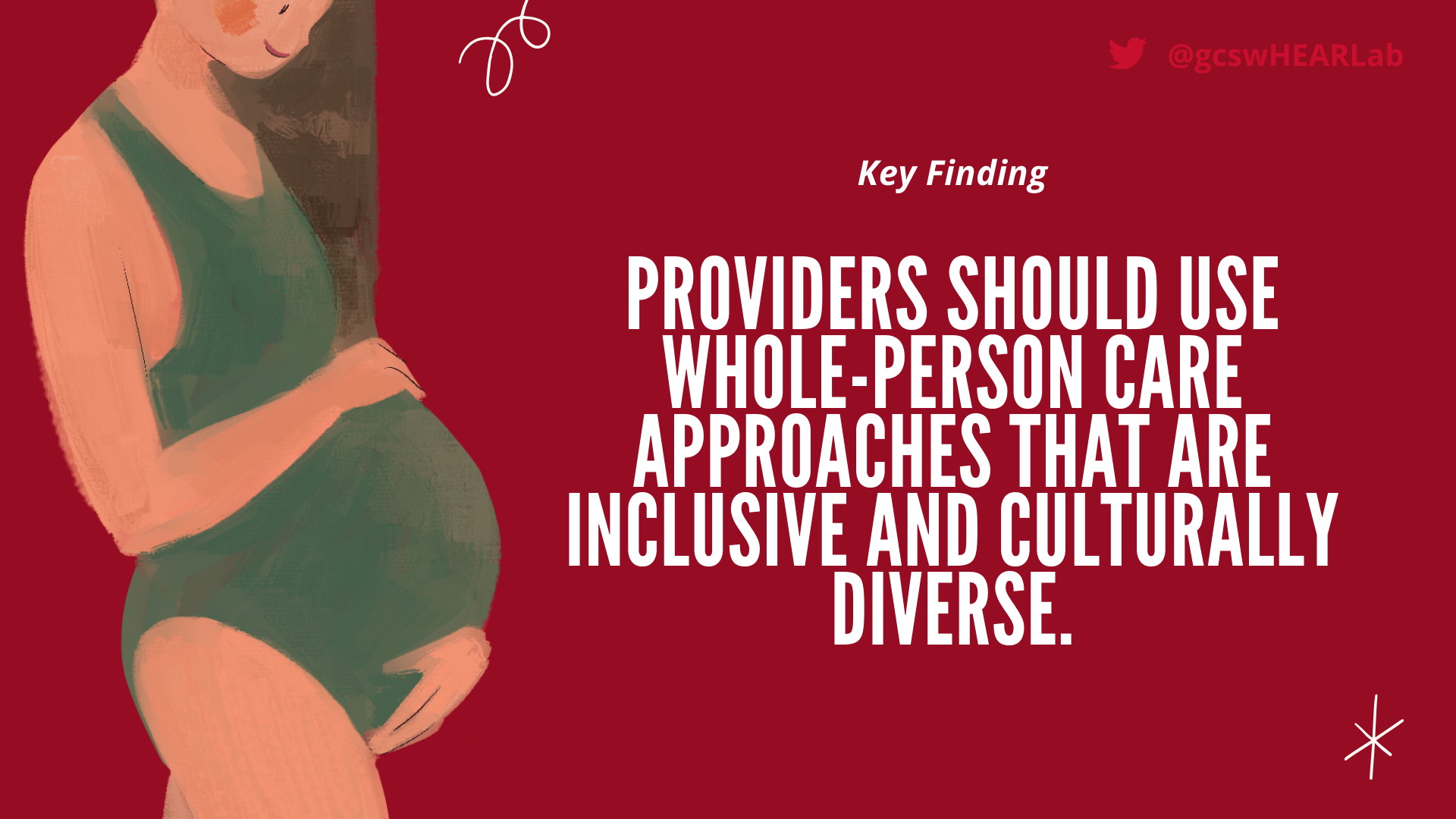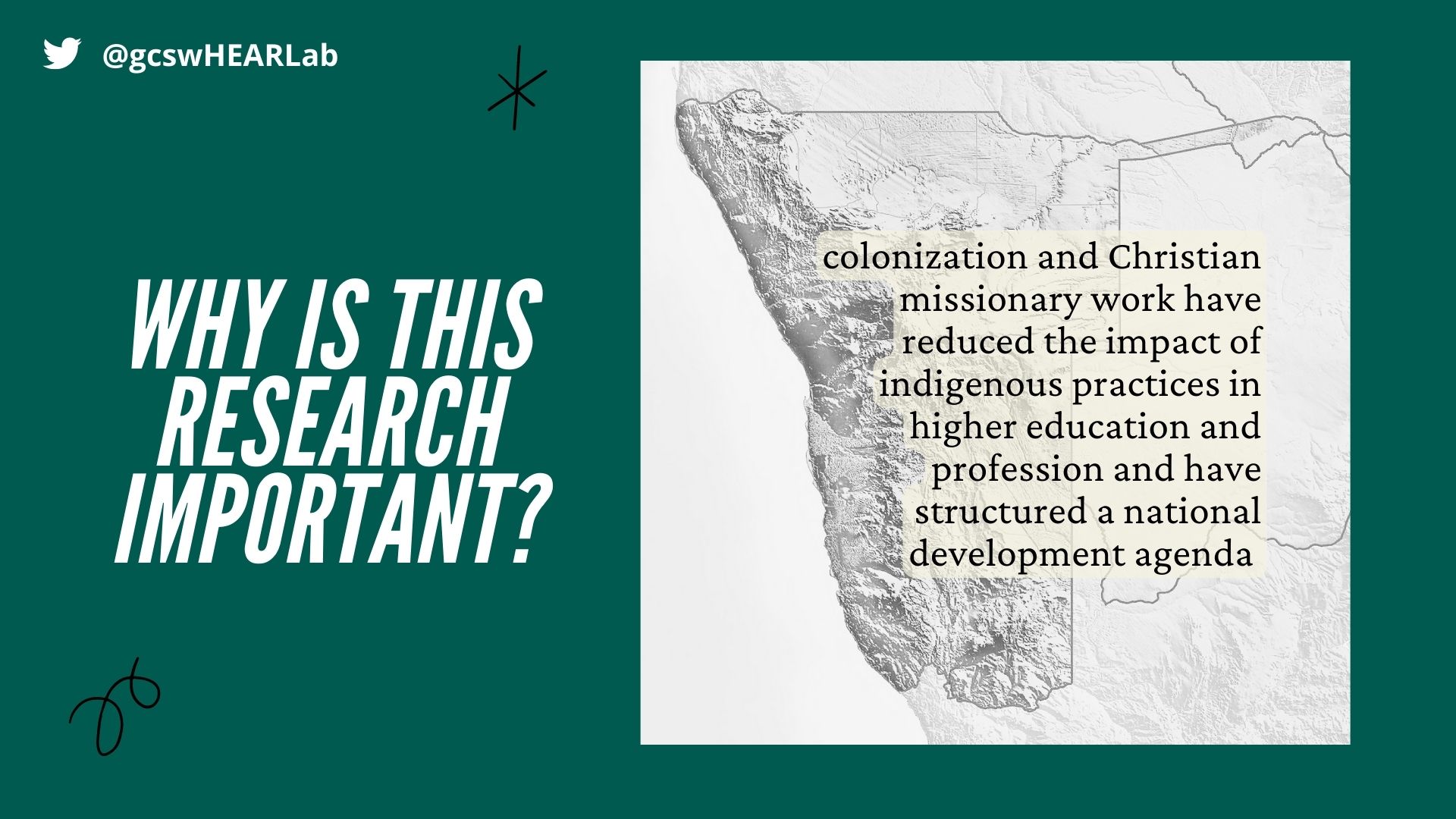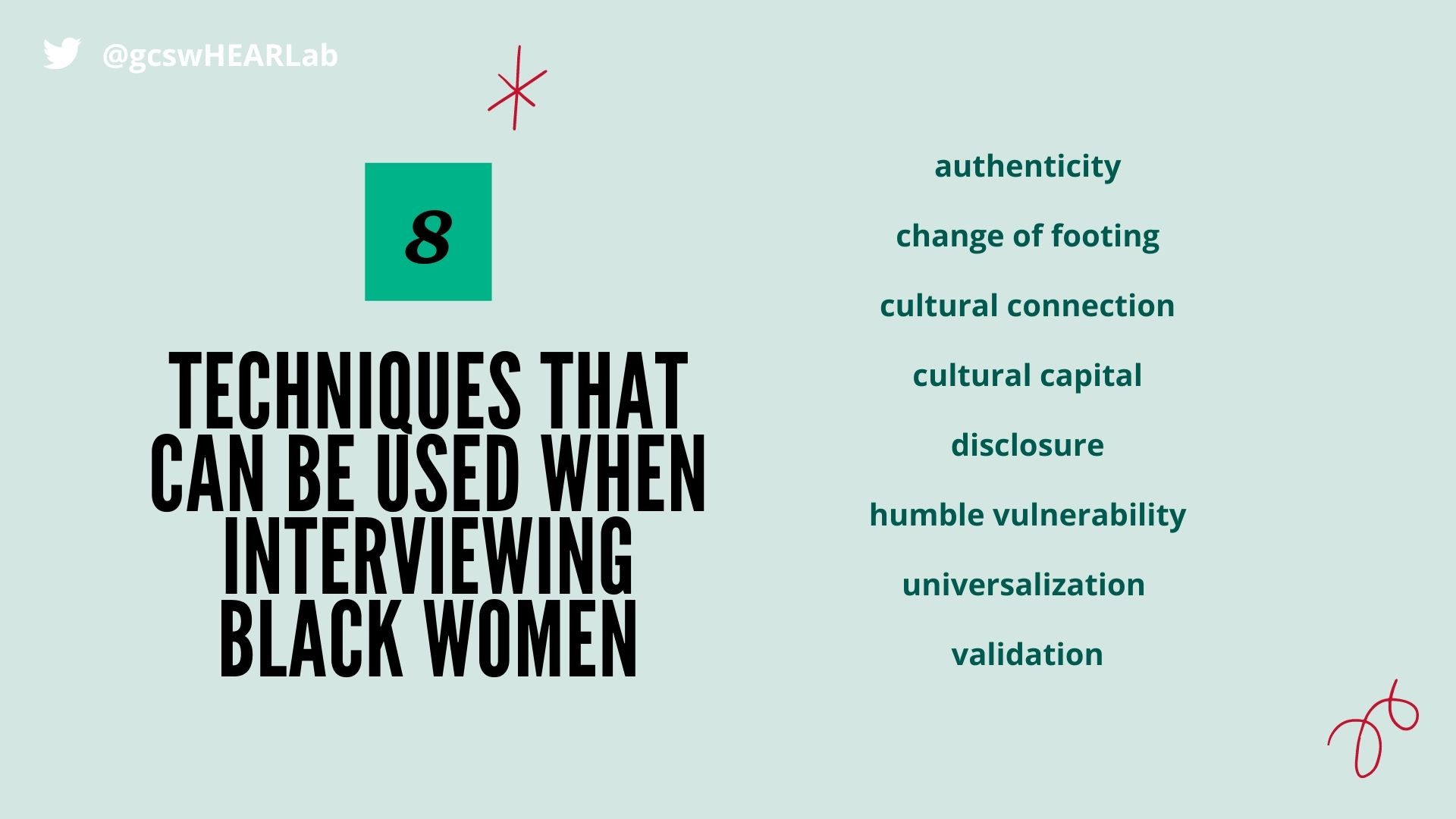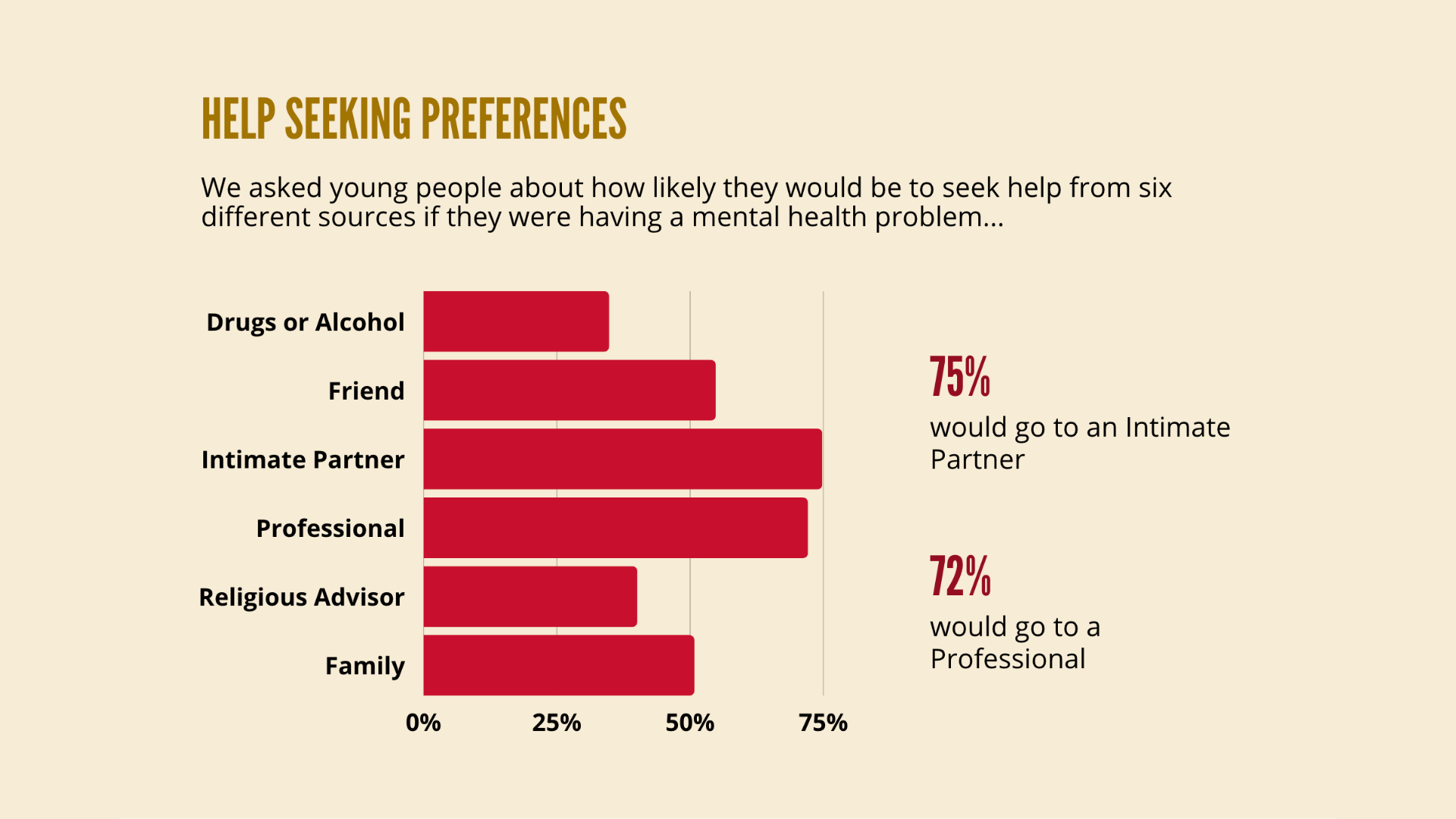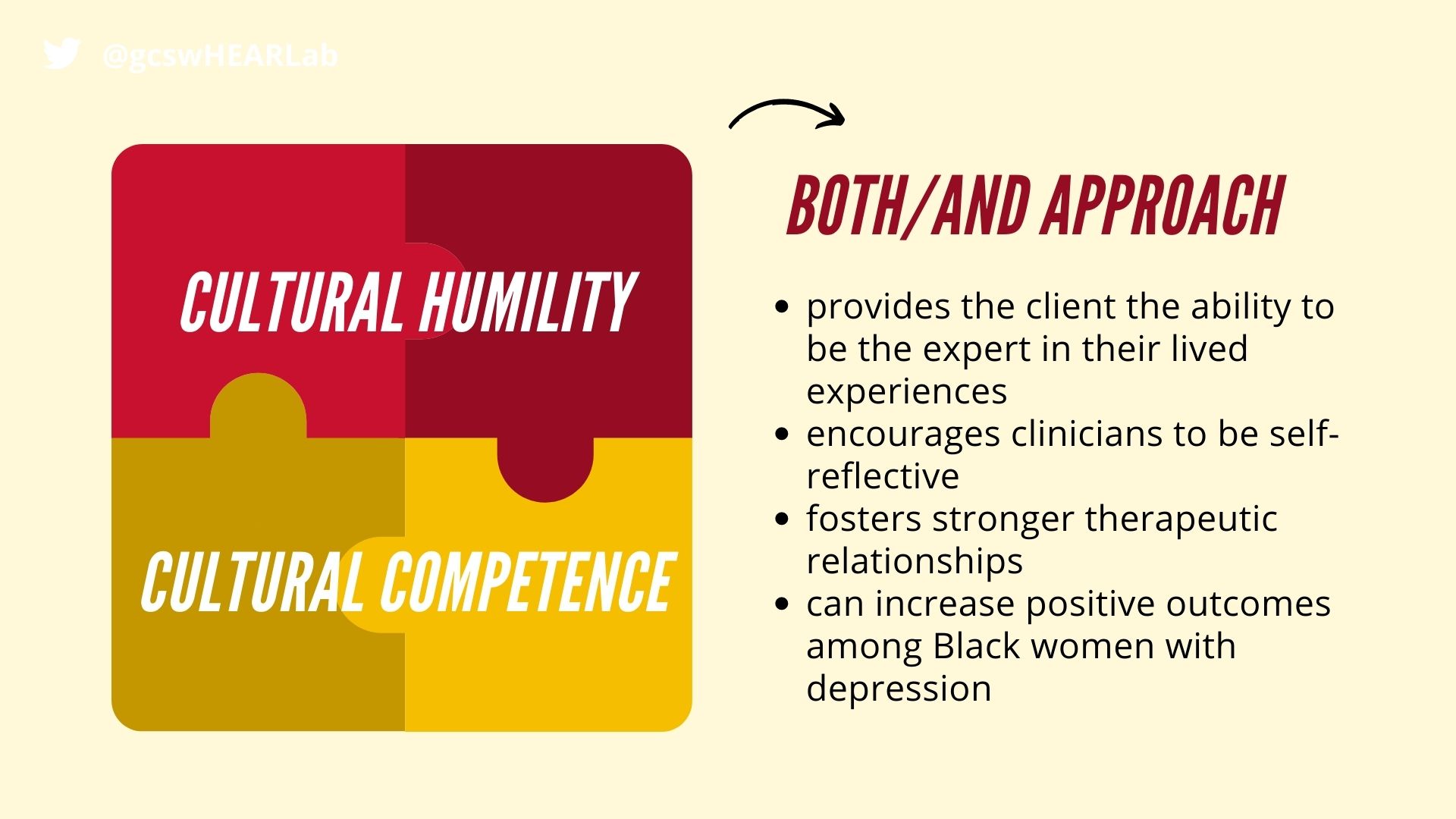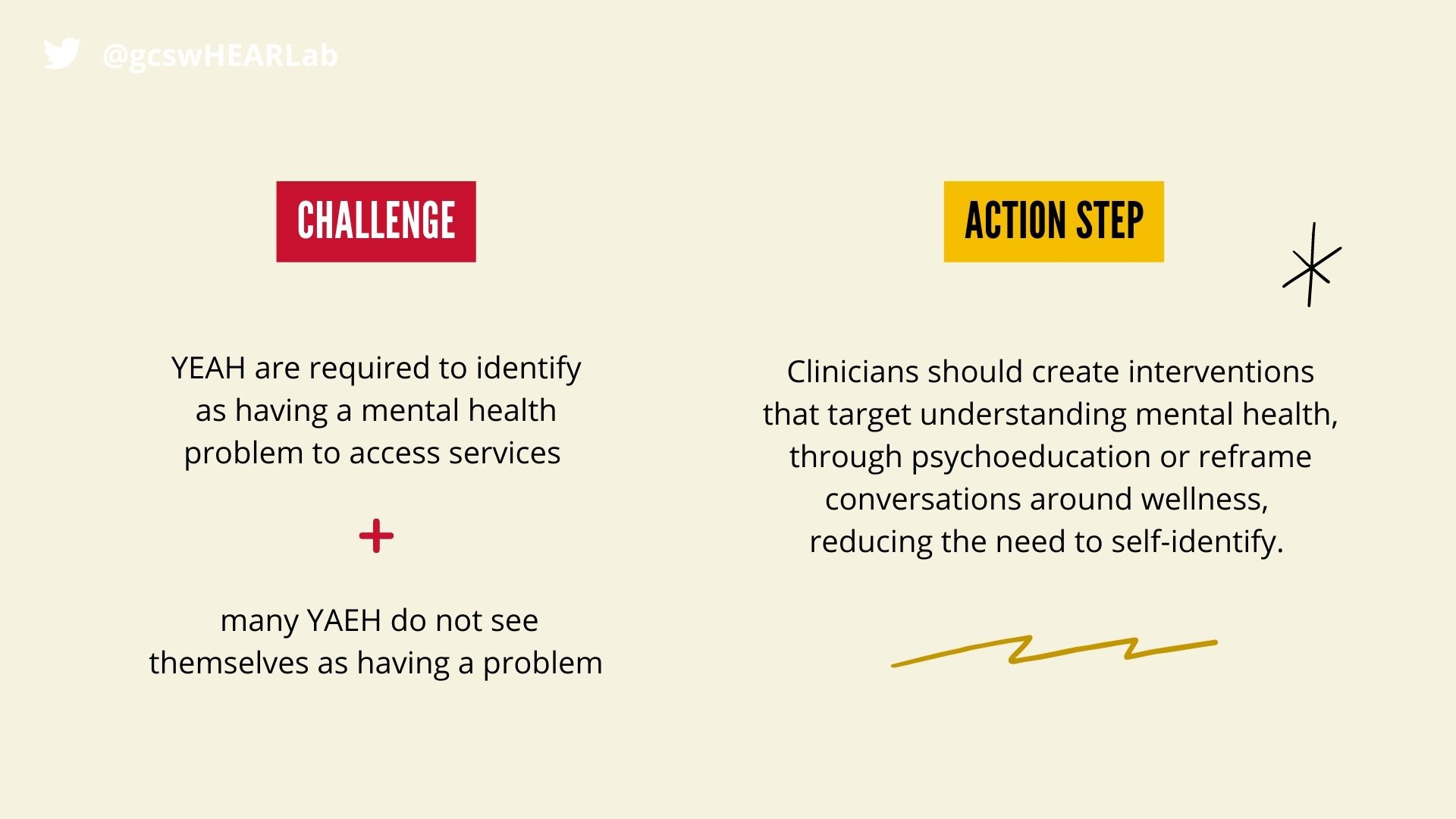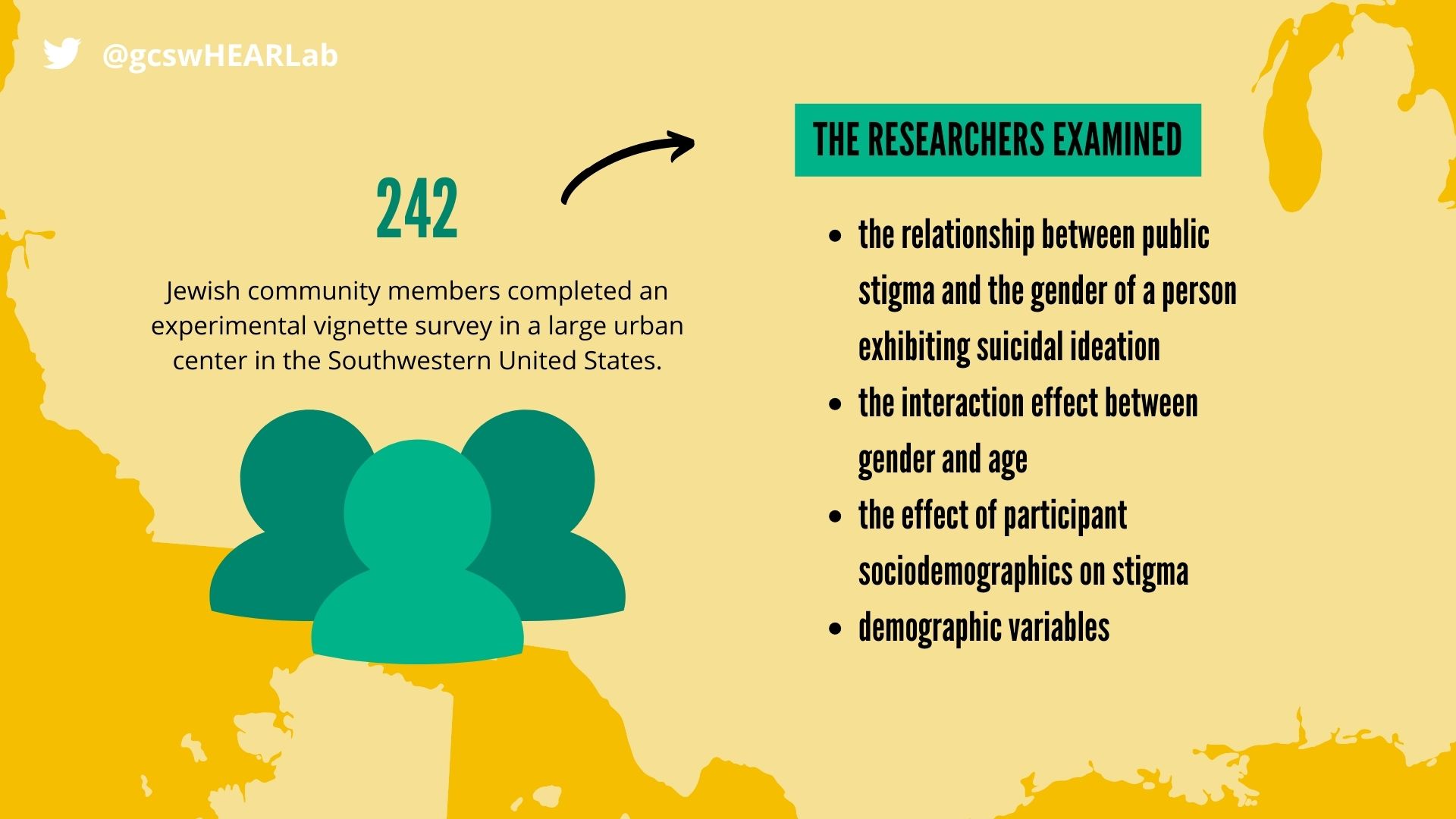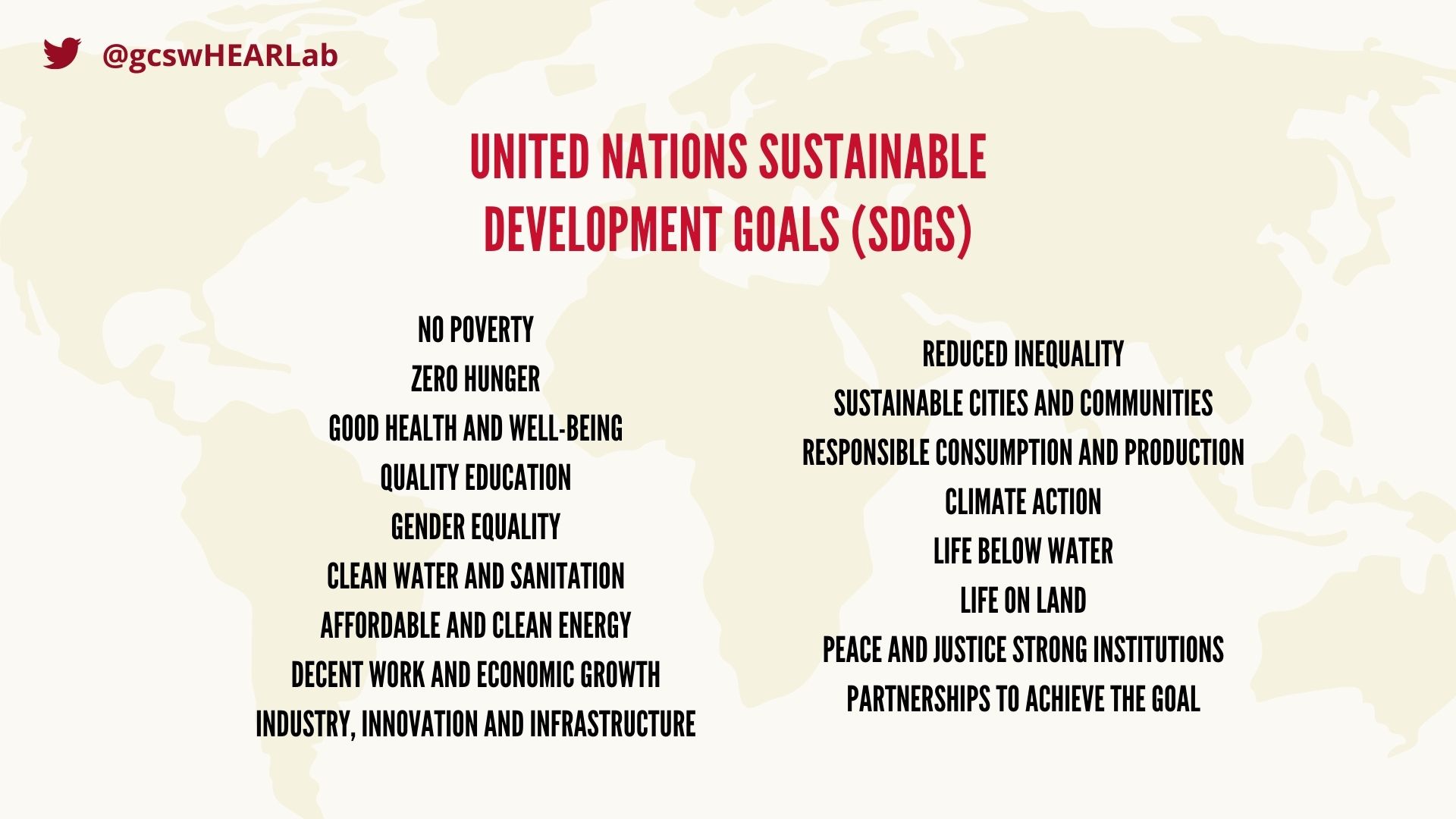Research Discoveries
RECENT FINDINGS
Integration of cultural competence and cultural humility in all aspects of the therapeutic process is a promising approach for social work clinicians providing support to Black women with depression.
Both/And: employing the tenets of cultural competence and cultural humility when working with Black women with depression
Authors: Quenette L. Walton, Latoya A. Small, Marion L. Malcome, Joan M. Blakey | 2023
Clinicians should create interventions that target understanding mental health, through psychoeducation or reframe conversations around wellness.
Self-Identification of Mental Health Problems Among Young Adults Experiencing Homelessness
Authors: Sarah Narendorf, Anil Arora, Diane Santa Maria, Kimberly Bender, Jama Shelton, Hsun-Ta Hsu, Kristin Ferguson, & Anamika Barman-Adhikari | 2023
When interviewing Black women for qualitative studies, it is vital for researchers to employ specific techniques that build rapport, trust, authentic connection, and help Black women feel safe.
“This Person is Safe”: An Exemplar of Conducting Individual Interviews in Qualitative Research with Black Women
Authors: Quenette L. Walton, Priscilla P. Kennedy, Olubunmi B. Oyewuwo, and Phylicia Allen | 2023
2022 DISCOVERIES
Experiences with Police Among Young Adults with Housing Instability
Authors: Sarah C. Narendorf, Aly Kramer Jacobs, Juan Bathelemy, Devonte Hill | 2022
Suicide Stigma in Jewish Communities in the United States
Robin Edward Gearing, Kathryne B. Brewer, Limor Smith, L. Christian Carr, Danny Clark, Andrew Robinson, and David Roe | August 2022
Mental Health & Social Networks Among Youth Exiting Foster Care
Authors: Sarah Narendorf, Anil Arora, Caitlyn Mytelka | 2022
Centering public impact scholarship among social work scholars to promote and contribute to the United Nations' sustainable development goals
Lead Author: Nicole F. Bromfield | July 2022
‘I didn’t do it!’ Lived Experiences of Suicide Attempts made without Perceived Intent or Volition
Authors: Shahnaz Savani & Robin Gearing | 2022
Policy Education in U.S. Social Work Programs: Results of a National Study
Authors: Suzanne Pritzker and Natalia Giraldo-Santiago | 2022
Striving toward Community-Engaged and Participatory Methods: Considerations for Researchers
in Academic Settings
Authors: Sarah C. Narendorf, Samira Ali, Charles H. Lea III, and Suzanne Pritzker | 2022
Catalysts of Conscientization Among the Professorate: A Descriptive Phenomenological Study
Authors: Kyee Altranice Young and Brandon Mitchell | 2022
Help-seeking attitudes in China are mainly impacted by an individual’s life experiences.
Mental health help-seeking in China
Authors: Robin Edward Gearing, Kathryne B. Brewer, Patrick Leung, Monit Cheung, Wanzhen Chen, L. Christian Carr, Arlene Bjugstad, and Xuesong He | 2022
Child marriage is a tragic human rights abuse that affects 600 million girls worldwide.
Professional Stakeholders’ Perceptions of Child Marriage in Lebanon among Syrian Refugees
Authors: Negin Najjarnejad, Nicole Bromfield | 2022
Examining Public Stigma of Schizophrenia in China
Authors: Robin Edward Gearing, Wanzhen Chen, Kathryne B. Brewer, Patrick Leung, Monit Cheung, L. Christian Carr, Gregory R. Gomez, Keri Powell, and Xuedong He | 2022
Social support as a moderator of physical disability and mental health in older Vietnamese immigrants in the U.S.: Results from the Vietnamese Aging and Care Survey (VACS)
Authors: Christina E. Miyawaki; Minhui Liu; Van Ta Park; Mindy Thy Tran; Kyriakos S. Markides | 2022
An Exploratory Study on the Role of Burnout and Devaluation among Staff in Psychiatric Facilities
Authors: Lindamarie Olson, Robin Gearing, Berenice Perez Ramirez, Luis R. Torres | 2022
2021 DISCOVERIES
One in four Baby Boomers fills the informal caregiver role in the United States.
Baby Boomers Who Provide Informal Care for People Living with Dementia in the Community
Authors: Christina E. Miyawaki, Erin D. Bouldin, Christopher A. Taylor, and Lisa C. McGuire
Trial by Fire: Innovative Approaches and Evaluation of Course Transition During COVID‐19
Authors: Sujeeta E. Menon, Virginia (Ginger) Lucas, and Susan P. Robbins
Nearly 75% of youth experiencing homelessness also report experiences of discrimination.
Experiences of Discrimination among Young Adults Experiencing Homelessness: Relationship to Mental Health Outcomes
Authors: Sarah C. Narendorf, PhD, Ashley Palmer, PhD, Kenya Minott, PhD, and Realyst co-Lab partners
We should promote being good company to each other - that will help caregiver-recipient dyad.
Association between caregivers’ characteristics and older care recipients’ well-being among Vietnamese immigrant families in the United States
Authors: Christina E. Miyawaki, Minhui Liu, Kyriakos S. Markides
Family communication and coping among racial-ethnic minority cancer patients: A systematic review
Authors: Yu-Ju Huang; Chiara Acquati; Monit Cheung
A typology of power in implementation: Building on the exploration, preparation, implementation, sustainment (EPIS) framework to advance mental health and HIV health equity
Authors: Megan C. Stanton, Samira B. Ali, and SUSTAIN Center Team
The impact of Strong Families, Strong Communities on relationship functioning in low-income African American and Hispanic individuals: Findings from a federally funded randomized control trial.
Authors: Sheara W. Jennings, Luis R. Torres-Hostos, Roderick A Rose, and Roberta M. Leal
Patient activation and treatment decision-making in the context of cancer: examining the contribution of informal caregivers’ involvement
Authors: Chiara Acquati, Judith H. Hibbard, Ellen Miller-Sonet, Anao Zhang, and Elena Ionescu
PAST RESEARCH DISCOVERIES
SMART Cougars prevents and reduces substance abuse and transmission of HIV/AIDS among Hispanic/Latino and African American college students ages 18-24 at the University of Houston, as well as the communities surrounding the university.
YouthCount 2.0! is a community-generated project led by the University of Houston and funded by the Houston Community Foundation to count youth in unstable housing in Harris County.
Lesbian, Gay and Bisexual (LGB) Youth in Child Welfare uses data from the second National Survey of Child and Adolescent Well-being (NSCAW II), the first nationally representative child welfare data set to include information on youth sexual orientation, to determine the proportion of youth involved in the child welfare system who identify as Lesbian, Gay, Bisexual, (LGB), and to compare the outcomes of LGB system involved youth to outcomes of system involved non-LGB youth.
3/40 Blueprint helped build the capacity of runaway and homeless youth providers to better understand and address the needs of LGBTQ youth and prevent these poor outcomes such as victimization, substance abuse and suicide through identifying promising practices, training methods, and tools to address the needs of LGBTQ homeless youths.
